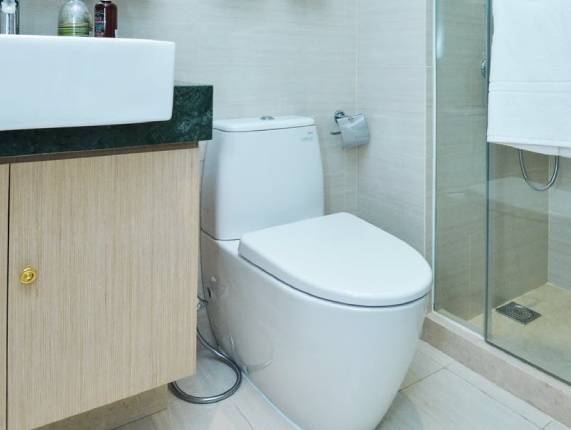Table of Contents
Introduction
A clogged toilet can be a frustrating and unpleasant experience. However, some clogs can be particularly stubborn and seem impossible to flush away. These unflushable toilets can lead to plumbing disasters, causing water damage and inconvenience.
Key Takeaway
Dealing with an unflushable toilet requires patience, but prevention is key. Avoid flushing non-biodegradable items down the toilet and follow proper maintenance practices to keep your plumbing system running smoothly.
Facts About Unflushable Toilets
Fact 1: Unflushable toilets often occur due to the presence of non-biodegradable materials that clog the pipes.
Fact 2: Flushing items such as diapers, sanitary products, paper towels, and wet wipes can cause severe clogs in toilets.
Fact 3: Unflushable toilets can lead to sewer line backups and costly repairs if not addressed promptly.
Common Causes of Unflushable Toilet Clogs
Several factors contribute to unflushable toilet clogs. Here are some common causes:
- Improper Flushing: Flushing items not meant for toilets, like sanitary products or cotton balls, can lead to clogs.
- Low-Flow Toilets: Some low-flow toilets have limited flushing power, making them more susceptible to clogs.
- Old Plumbing: Aging plumbing systems may have narrower pipes or mineral deposits, making clogs more likely.
Preventing Unflushable Toilet Clogs
To reduce the occurrence of unflushable toilet clogs, follow these preventive measures:
- Proper Disposal: Dispose of non-biodegradable items in the trash instead of flushing them down the toilet.
- Proper Flushing: Flush only toilet paper and waste down the toilet, avoiding any other items.
- Regular Maintenance: Schedule plumbing inspections and maintenance to identify and address any potential issues before they become major problems.
Solutions for Dealing with Unflushable Toilets
If you’re faced with an unflushable toilet, consider these solutions:
- Plunger: Use a plunger to create suction and dislodge the clog.
- Auger: An auger can reach deeper into the pipes to remove stubborn clogs.
- Chemical Drain Cleaners: Use caution when using chemical drain cleaners, as they can be harmful to plumbing systems. Consult a professional if necessary.
- Professional Plumbing Services: If all else fails, contacting a professional plumber is the best option to resolve unflushable toilet clogs.
Frequently Asked Questions
Q: Can I flush wet wipes down the toilet?
A: No, wet wipes are typically not biodegradable and can cause clogs. Dispose of them in the trash instead.
Q: How can I prevent my toilet from clogging?
A: Avoid flushing any non-biodegradable items, perform regular maintenance, and be mindful of the overall functioning of your plumbing system.
Q: Are all toilet plungers the same?
A: No, there are different types of plungers available for different purposes. Consult with a professional to ensure you have the right plunger for your toilet.
Q: Can I use DIY drain cleaning recipes to unclog my toilet?
A: While some DIY drain cleaning recipes may work for minor clogs, it is advisable to consult a professional plumber for more severe or persistent clogs to avoid causing further damage.
In conclusion, dealing with an unflushable toilet can be a frustrating experience, but by following the preventive measures outlined above and employing appropriate solutions, you can effectively manage and prevent the occurrence of unflushable toilet clogs. Remember, when in doubt, it is always best to consult a professional plumber to avoid exacerbating the issue.
nnn.ng
https://nnn.ng/faq/33667/














